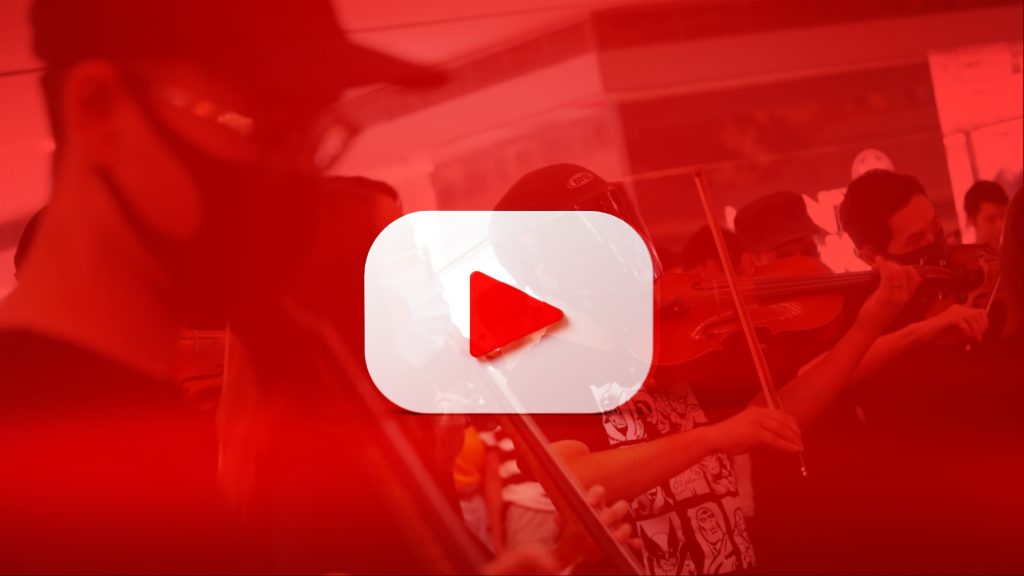
In compliance with a court order, YouTube bans Hong Kong’s pro-democracy protest anthem.
- China’s attitude and actions toward Hong Kong have led to social unrest and pro-democracy protests.
- YouTube geoblocked 32 web links hosting versions of the song.
YouTube is complying with a Hong Kong court order to restrict access to a popular pro-democracy anthem, “Glory to Hong Kong.”
Last week, a court in Hong Kong granted a government request to ban the anthem. In response to the court order, YouTube has geoblocked 32 web links hosting versions of the anthem, making them unavailable for viewers in Hong Kong. The decision was seen as aligning with the interests of the Chinese government, which has been increasing its control over Hong Kong’s legal and political systems.
Hong Kong was originally a part of China until the First Opium War when it was ceded to Britain. After over 150 years of British colonization, it was given back to China under the principle of “one country, two systems.” It was supposed to preserve the city’s freedoms and autonomy for the next 50 years. In recent years, China has been intruding on said freedoms and autonomy. Cue social unrest and pro-democracy protests.
The protesters adopted “Glory to Hong Kong” as an anthem, serving a purpose beyond getting attention on social media. To them, the anthem helps create unity and identity, among other things as well.
“Glory to Hong Kong” came out in 2019 at the height of the pro-democracy protests. It has become a symbol of resistance for many in the city. However, authorities argue that the song’s lyrics, particularly the phrase “liberate Hong Kong, revolution of our times,” carry separatist undertones and pose a threat to national security.
In an email reply to CNN, a YouTube spokesperson expressed the company’s disappointment. “We are disappointed by the Court’s decision but are complying with its removal order by blocking access to the listed videos for viewers in Hong Kong,” they wrote. “We’ll continue to consider our options for an appeal, to promote access to information,”
The decision sparked criticism from human rights groups and industry stakeholders. Such censorship measures could stifle free expression online and undermine Hong Kong’s reputation as a global business hub.
Here’s the thing. While China has a very questionable human rights record that had even the U.K. asking questions, this situation is exclusive to neither China nor YouTube.
Whether by choice or not, Big Tech has positioned itself in a position of power when it comes to controlling the narrative. Some even view such decisions as ‘participating in the oppression.’
And over the last couple of years, it has become glaringly obvious what’s going on. Even Macklemore called Meta, who’s notorious for this by the way, out in his most recent track “Hind’s Hall.” He accuses Meta of taking money to suppress certain content, rapping “You can pay off Meta, you can’t pay off me.”
A 2021 article reads, titled “Social Media Platforms are Silencing Social Movements,” touched on this very same subject. It reads, “Rights groups and activists have long complained that social media platforms are taking down content that is integral for human rights activism around the world.” It also highlighted 3 instances where this has happened concerning Syria, India, and Sheikh Jarrah.
And if they are not meddling with foreign countries’ politics, they are meddling with their own country’s social unrest. They do it either through social media or their seemingly endless pits of money. January 6, anyone? In a 2021 article on “How tech platforms fuel U.S. political polarization and what government can do about it,” the author realizes that while platforms like Facebook, YouTube, and Twitter are not the root causes of political polarization, they do exacerbate it. They contribute to the spread of disinformation and extremism, which can lead to an erosion of democratic values and partisan violence.
YouTube banning the Hong Kong pro-democracy protest anthem is alarming. It’s not the first time Big Tech intervenes in politics, and it sure won’t be the last.
Inside Telecom provides you with an extensive list of content covering all aspects of the tech industry. Keep an eye on our Tech sections to stay informed and up-to-date with our daily articles.